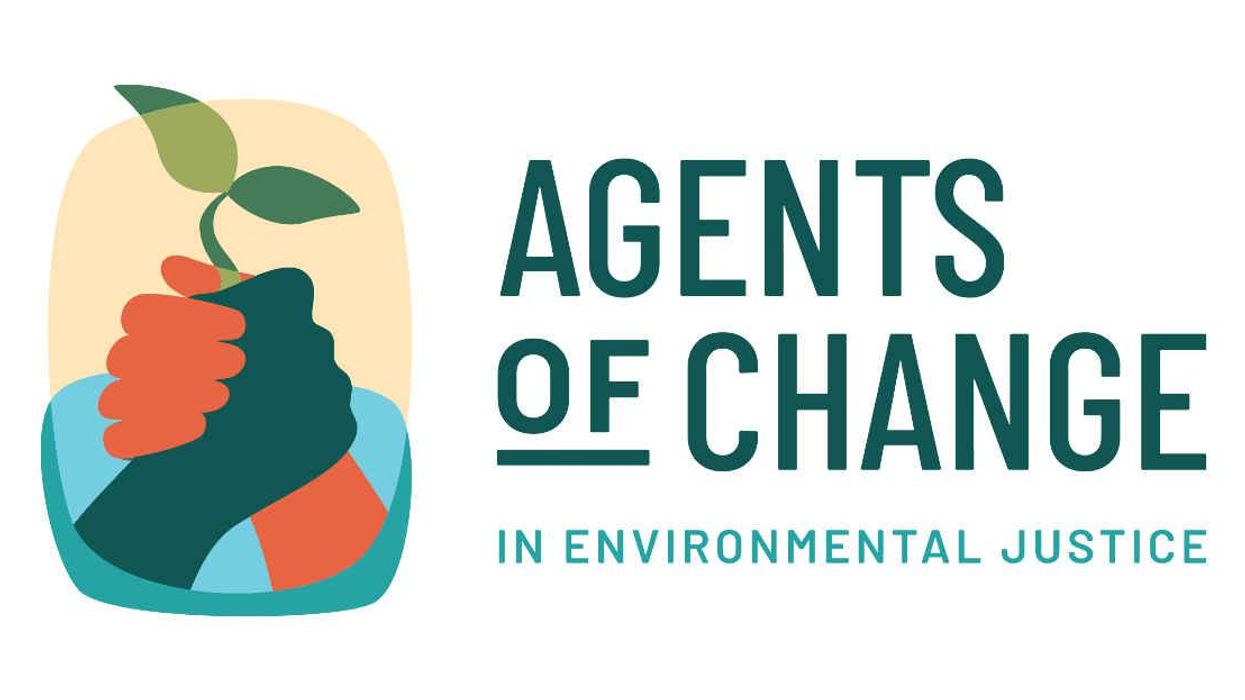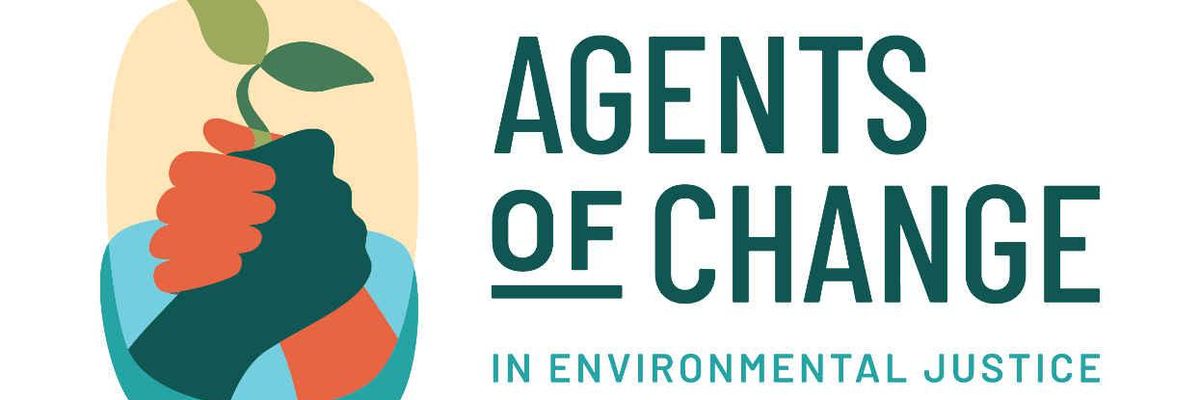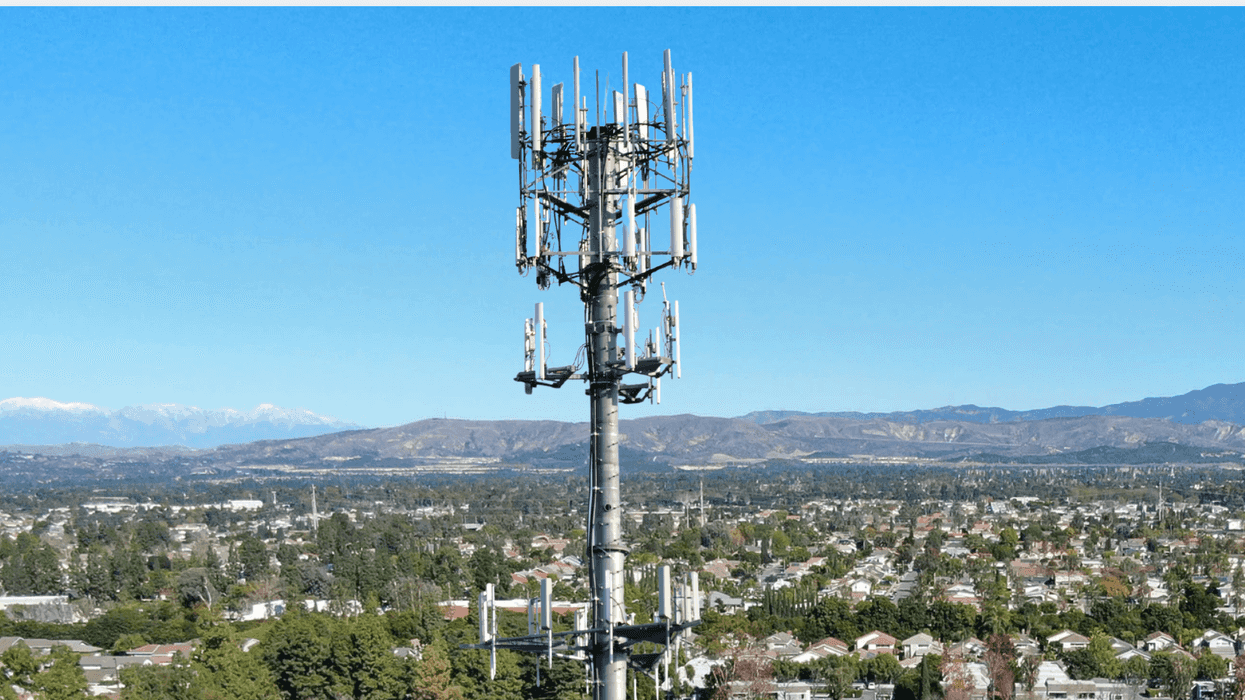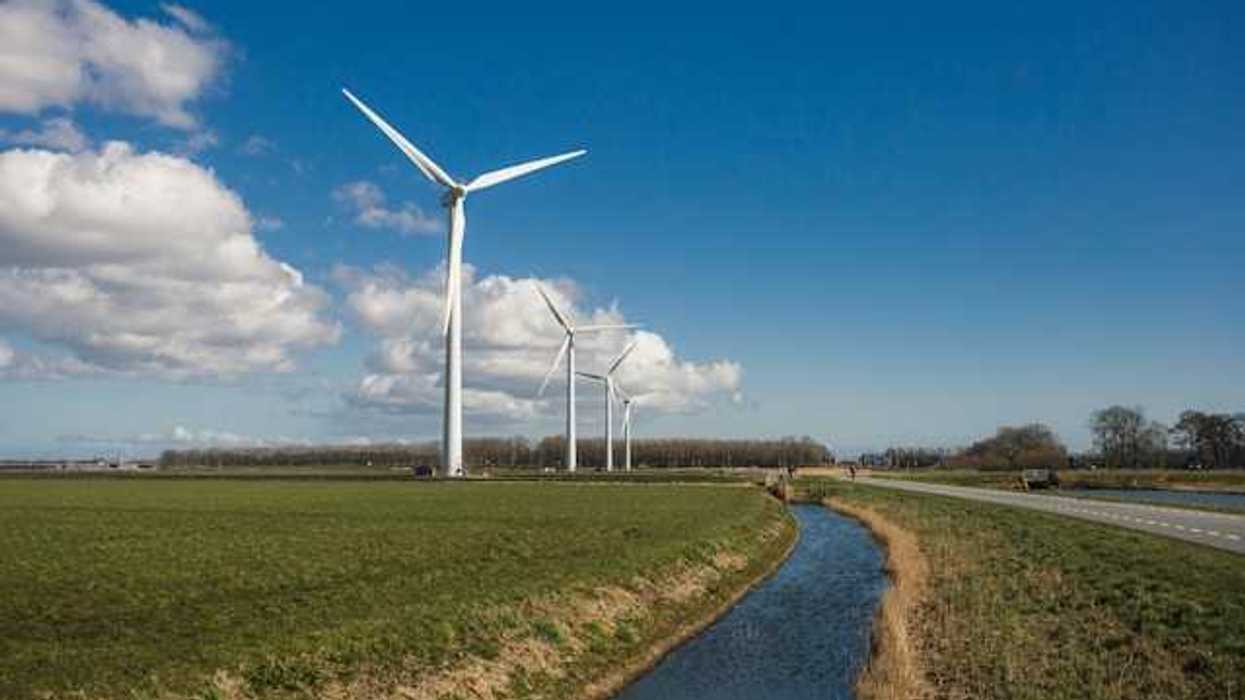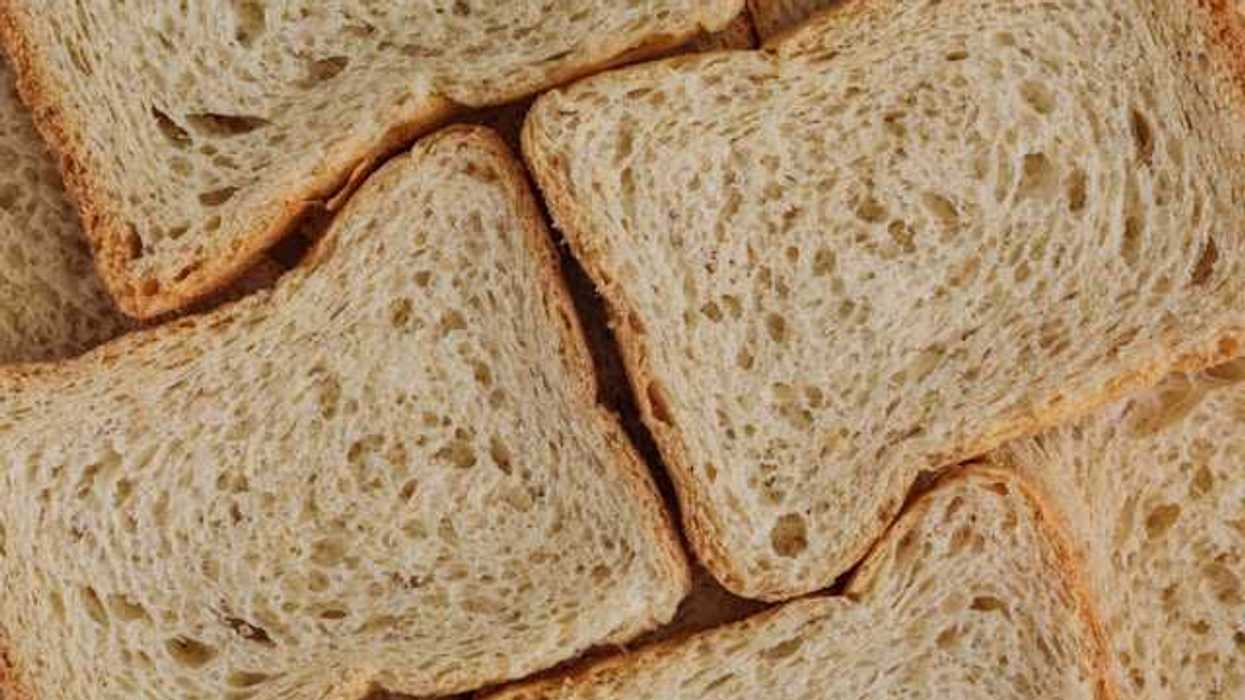Michelle Gin joined the Agents of Change in Environmental Justice podcast and talked about being a first-generation college graduate, what it's like working with businesses while also holding them accountable, and strategies for communicating environmental risk to different populations.
Gin, the Toxic Free Kids Communications Planner in the Environmental Health Division of the Minnesota Department of Health, is part of the current group of Agents of Change fellows.
The Agents of Change in Environmental Justice podcast is a biweekly podcast featuring the stories and big ideas from past and present fellows. You can see all of the past episodes here.
Listen below to our discussion with Gin, and subscribe to the podcast at iTunes, Spotify, or Stitcher.
Transcript
Brian Bienkowski
I'm super happy to be joined by Michelle Gin. Now, Michelle, how are you?
Michelle Gin
Doing well. 2020 is a crazy year.
Brian Bienkowski
Yes, that is a that's about the same answer. I keep getting on these. So yeah, you're you're in the same boat as most of us. So Michelle, you're our first guest here with our new group of fellows. So I'm super excited to talk to you and you have a little different role. You're coming from a state government sector, which is super cool for us. We're glad to have people outside of academia. And that's really exciting. But I wanted to start with your essay that you provided to us to get started, you talked about how your family's originally from Hong Kong and you're a first generation college graduate. I was wonder if you could tell me a little bit about what that milestone meant to you and your family?
Michelle Gin
Absolutely.
When I think about that time, when I was that high school student going to college, it didn't quite faze me. I didn't see the significance as much because you know, your teenager is focused on like, what's going on my life. I my peers, they were all applying to universities as well. So it felt normal for me. Where I really felt started to feel different was when I realized my friend's parents, they were able to guide them through that process. It was just my mom and I and she wasn't able to mean she did the best she could we visited a couple schools, she looked through the brochures with me. But I didn't really get that same level of support. That number of my friends had ignored. And I realized that lack of support until later on. You only know what you know. It was really my first week on campus actually the week before school started. And that was because I was brought over brought in by the Iowa edge program at the University of Iowa. It was a program designed for first generation students and I am so glad they host that program because they recognize that there was a disadvantage, didn't understand how to access real academic resources, financial resources, and they truly made a difference in my ability to succeed in my four year college program.
And I mean, I finished my degree, it was fantastic International Studies and global health. And some years later, I went in for grad school and I felt pretty prepared like okay, am I bachelors, I know how to do this. And I was at the end of my two years, my master's program public health where I realized again, I had this disadvantage, and it didn't feel great. I realized at the end that there were so many things that I hadn't known before I would have done differently. I love my experience, I wouldn't change that. But I realized how I could have maximized more of my education and maximize more of the financial side of things. And again, I think that came from not Having a family member in my life to really share their experience. I know for my mom, she was incredibly proud of these achievements. She was the graduation both times waiting the long list of names for my name to get called just to walk across the stage. And it meant a lot, she would tell me how my grandma in Hong Kong, she would be working constantly saving every, every bit of money for the future. She worked in a laundry shop smaller than most people's bathrooms here in the United States. Just to get by and on her commute home to, to and from work, or get you to work. She was also working, she'd be mending people's clothes on the bus. My mom would always talk about how life was always working. And same for my own mom, she earned her associate's degree while I was in high school, because she saw the value of education. And she always told me, this is one of the most important things always push forward and do not let anything stand in your way. And she always found a way to help support me through school and also the finances of school.
Brian Bienkowski
Wow, that's that's a really great story. And and I guess, I do think it highlights how vastly different the experiences for people going to college for for a lot of people in the US. It's just the next step, right? It's it's for a lot of privileged students, it's just a next step, not thinking about how it can be a real challenge for some people if you don't have the kind of the support system. So getting from kind of your masters in was it public health, your masters,
Michelle Gin
Yeah it was masters in public health, focus in maternal and child health, health policy and health disparities.
Brian Bienkowski
So from there to your position now, tell me about that journey.
Michelle Gin
Ah, so long, long journey is never a straight path, which is how I prefer it. Before I went in, even for my Master's in Public Health, I actually thought I was a nice come a science teacher, I love the environment. Thought I love science more. But I realized I liked people. And it was while I was doing some research in Costa Rica, that I realized, like, Oh, this isn't for me. And I took a few years off to really explore things I worked in nonprofit, I work in academia. And it was through those experiences, like I really enjoyed them. But I realized my true calling was in public health. And that's when I went in to get my degree. And coming out of that I had already been thinking about where am I going to go with this? How can I make the greatest impact? I, at first, when I started school, I thought I was going to be going back into the nonprofits. Because I love community work, you get to see the people you're impacting every day, you get to see a youth go through school, and then decide if they're going to go to technical school or go to university in support their dreams, you can see changes and health can see so many things. And I love that. But what kept me kept bothering me bother me like, I wanted to make a greater impact. And I was thinking how can I do that. And it came down to policy. To me, I see that policies, shapes, systems, those systems impact more people. Like that was the way how I thought I could make a difference. And I'm like, how can I make better policy change. And that's when I decided that I think government would be a route to go, I had heard the horror stories of how slow government can work. And I was ready for that challenge. And I will agree like government does go slow. And there are reasons for that you can have policy change every year that's going to be challenging for the end user of that. And so that's how I started going to government and actually found a wonderful fit in my current role. We're gonna work on toxic free kids, the Cox three kids program looking at toxic chemicals and consumer products as a blend of trying to promote safer human health as well as environmental health since the environment and people are things I'm very passionate about and this blended them together. And in this role, I get to work on policy change, we get to make suggestions on how do we change laws that are going to protect people and their health and that is just really exciting. And it's not as community focused as it used to be I roles used to be however, I also have been lucky that I've had the freedom to really shake my role. And I have supportive leadership who they trust my judgment, how do I do this best and so I do still get into integrate the community.
I get to involve a university professor, I got to work with her entire class in first semester, we looked at skin whitening products in the Hmong community and looked at Target health communications, that would be most effective. Because your health communications are really going to read a very depending on your audience. I also get to work with our local businesses, and what are they doing. And those are some things that I didn't know I could integrate in with a government job. And I've been able to, it's been a wonderful.
Brian Bienkowski
It sounds like a really progressive state program when it comes to tackling toxics in that want to hear more about it. But before we move on, from kind of your path to getting there, I wanted to ask a big broad question of what is one defining moment that shaped your identity?
Michelle Gin
It's a good question.
I need a moment for that.
Brian Bienkowski
Sure. And while you're thinking, I will say as somebody who has been a journalist for many years, when someone says something's a good question, that usually means they really want to answer it, or they really don't want to.
Michelle Gin
Because I wish I had known that question advance, I could have prepared better. I think a defining moment for me, has been having the opportunity to live in travel abroad. So it's not one specific moment. But I can identify that there's an organization called international physicians for the prevention of nuclear war. And I have been with their organization since 2010, so it's been a decade of my life. And their work is a blend of advocacy, global citizenship, policy change, and health in the environment. And these are all things that I am passionate about. And I kind of fell into this organization by chance. And it's become a part of who I am, it's part of my identity. And that work has taken me around the US around the world, to really build strong relationships, so that that collaboration, I think, is so critical. Like I work and like people often work in silos. And through this experience, we purposely are trying to build relationships with young health professionals across borders. So as we grow into positions of leadership, we can say, I have trusted contacts in X, Y, or Z country. And we're gonna keep working on these larger issues, because it's greater than ourselves. And that I think, is a would be a defining time, that experience I had, specifically in 2012, with this organization, I met so many like minded individuals who've truly thought until those global citizens working so hard for Human Environmental Health. And they became my family. And some of that work truly has shaped where I continue to go today.
Brian Bienkowski
Awesome. And what was the name of the organization? Again,
Michelle Gin
International physicians for the prevention of nuclear war.
Brian Bienkowski
Great, awesome. Well, I hope I hope listeners check that out. I that's the first I've heard of it unless it was in passing in a news article. So very cool.
Michelle Gin
They had a Nobel Peace Prize.
Brian Bienkowski
Oh, geez, I should I'll have to edit that out. And so so back to where you're at now in your in your role and looking to reduce toxics in consumer products. And, you know, we talk about reducing toxics. This is kind of near and dear to my heart. You know, I've written about this for years. And, you know, we're all exposed to a variety of different air pollution, pesticides, and the cringe disruptors. In your work. You've looked to shine a light on potentially harmful products used also in specific to lower socio economic populations. And you mentioned the Hmong population. And I'm wondering if you could tell me what type of exposures we're talking about here. Other examples and how you're working to combat it?
Michelle Gin
Sure, I can. I think there's two examples that come to my mind. One that's very broad, and that is some project our team did last year. So when I say that the team is called the chemicals and products interagency team is a collaborative between the Minnesota Department of Health Minnesota Pollution Control Agency in Minnesota Department of Commerce with three state agencies, and we all bring our respective strengths to the table. And leverage our resources because you know, government has limited resources. And we have to be creative on how do we do what's best, and make the most impact. So in our group, we do consumer product testing, looking for specific chemicals, where we have policies on them here in Minnesota. So we were looking at lead and cadmium, which are heavy metals. And we were looking at them and these spitting battle toys, I'm not sure if you're familiar with what those are. Sometimes they're known as beyblades, which is a brand name. If you have children in your life, you've probably maybe seen these little toys that they like spinning tops, and you spin them and they hit one another. So it's a balance between these toys. And we had purchased a number of those toys online, as well as in person and brick and mortar stores. And we purchased products that were like the official products from two care Tomi, as well as from Hasbro. And we also purchased a number of products that were less expensive. And were the off brand versions of these bidding battle toys. So we tested 50 of these toys. And we were looking at the different pieces of them. So we were looking at the paint or the metal parts that may flake dusts, which could contain the lead and cadmium which is toxic to children. And when through this testing, we found that the name brand spinning battle toys did not show concerning levels for letter cadmium, but those that did contain the lead, cadmium were those off brand spinning battle toys. And that right there, yo those off brand toys, who's more likely to buy them, someone who might not be as financially secure. And that is something that we've seen in other products that we've done testing on is where there's less regulation or it is your lower socio economic group is more likely to purchase thing. There might be more exposure to chemicals. And that's something that our group is working on and try to identify that because when you go to purchase a product, you shouldn't have to be thinking is this going to be toxic to my health or my child's health? So that's one case where we've looked at trying to combat exposures to toxic chemicals. Another one is the work of skin lightening products. So this is the work I had mentioned earlier, how is not just within the Hmong community, skin lighting products is an issue that impacts all people of color, all around the world. This isn't a Minnesota issue a US issue. This is a world issue. Skin lending products back in 2013, were a $10 billion dollar industry and they just continue to grow skin lining products. If they are showing some kind of sign of effectiveness, it's probably because they have a chemical and agent in there that isn't good for you. And often it is mercury. Sometimes it's hydroquinone, or sometimes it's steroids, or it could be a combination of those three things. And in Minnesota, we've been coming across this issue for a number of years and have been working on trying to educate people who might be users of it. vendors who might be selling it, because if we can get it out of the supply chain, that means there's less access. And we also for this issue, we realize it's not just a supply and demand issue of these products that have toxic chemicals in it, we realize that this is an issue that goes much deeper. This is colorism. This goes back to Eurocentric beauty ideals. This goes back to the days of colonization where Europeans would go to places we know today as Asia, Africa, the Americas and view people as inferior and to a strategy that was used by colonizers was to divide people and how do you do that? You put them against one another.
So if you were someone who maybe if you looked more like colonizer sounded more like colonizer spoke more like them, like could be just a little bit easier for you. And that is some of those that's the rooted history where you might have I might have a family member telling me Oh, you want more fair skin and where does that idea come from? It comes from them being told by their elders that this will make life easier for you. We know this exists today. Racism exists today. This colorism is part of this. So that is an issue that I'm honored that our health department is spending the time and effort working on it. There are other states across the country, who we team up with California, New York, is still a relatively new issue is not very well known. Just because of mercury, for example, you can't see it, you can't smell it. You can't taste it in product, the consumer, how would they ever know it's in there, it's not like it's labeled on the product. And if it is, for some reason labeled audit, it can also take on multiple names, and just the word mercury. So this is some work that we've been doing to really educate people how it's harmful for their health and their family's health, because mercury vapors, they will go into the air. So if I had a jar of a product and had a bit of mercury in it, I open it that goes into the air of my home, if I live in a multi generational home, that's impacting the grandparents, the grandchildren, everyone there. And that's what it is one way that people can be exposed to mercury. It's inhalation dermal absorption, and ingestion. And so there's still other ways as getting into people. And oh, I could just talk about this. I hope I can answer the main question there.
Brian Bienkowski
Oh, for sure. And on the second issue of skin lightening, I don't think it's very well known. And I'm wondering how you and your colleagues go about not only tackling the immediate issue of stopping these harmful exposures, but of addressing some of the deep rooted racist underpinnings?
Michelle Gin
Absolutely. It is a multi prong approach. I don't think you can talk about skin lightening products without, you know, touching an uncomfortable subject. We talk about colorism every single time we give a presentation and talk about it, we open up with let's look at the history of this. Why do people want to do this? Because when we first started talking about this, sometimes I'd get those comments of Oh, isn't it funny, you know, people who identify as white they want to get tan and vice versa. It's just always grass greener, greener on the other side. And that is not true. colorism is a privilege as the product prioritizes lighter skin over dark. We know that and it's it's something that needs to be addressed. People need to go uncomfortable with it. People need to know where's this coming from? How does it impact others around them. So we always open up our education with acknowledging that. We also talk about the health side of things, it really depends on who our audience is. For businesses I can think about they want we do education with them, because they might not know that this was a problem to begin with. So we talked about one that first products are actually banned in the US in Minnesota. So there's that issue, too, if those products are still around in there, and they're selling them, they're selling to their community, and they're like, Oh, I don't want to sell a toxic part to my community members. This is my family. And that is a way that we share that message. And we also share of course, the message about it's important to love your skin so that we don't have this demand that's causing a supply.
We talk about how this is related to colorism. So all these messages, one of them or more, one or more of them will generally resonate with a person. And that's where we are able to say see behavior changes or policy changes. And that's really exciting. So it's always a multi prong approach. Minnesota really takes the attitude of education first, we're not looking to try to get people in trouble for for this.
Brian Bienkowski
And you mentioned working with business as one of the one of the prongs, one of the approaches that you would use. And I think that's an interesting. It's an interesting viewpoint that you can bring that maybe an academic or someone from the nonprofit world couldn't. And I think a lot of people in the environmental health space automatically think of legislative fixes when it comes to things like toxics and pollution. So I wonder if you could tell me a little bit about working with businesses to reduce harmful products and how this coupled with the power of the consumer could maybe be more powerful than always turning to regulation?
Michelle Gin
Absolutely. Well, first, I think it's a combination of both. legislation is important because it's something that you can always reference when talking to community. But also with legislation, you need to have something that passes that has enforcement with it actually has a bite to it. So that's important. So whenever policymakers are writing something up, that can sometimes be a missing part of it. So on the side, where I'm coming from, if I don't have anything to work with, I can't do you have any kind of enforcement so what does that do? So that's important, but the other side then is working with businesses, and I'd really like to uplift a business that we work with Quite a bit, they're called the longtail marketplace. In St. Paul, Minnesota. And their manager Jamie is a close friend of mine. And we have grown our relationship over a number of years because though we are government and business, which usually has this idea of like, oh, they're, they don't like each other because the government is trying to regulate the business. But that's not the relationship that Minnesota tries to take with businesses we work with. We look to do education and transparency, and having resources available being open for questions. And that question doesn't mean their business and if something bad, they're just trying to ask a clarifying question, we get trouble for it. So longtail marketplace, number of years ago, they realized they were selling these products that they shouldn't have been, and their vendors, instead of having a fine, were given the opportunity to go through an education program, so that we could understand what are these things? Why are they bad, why they should sell them anymore. And Jamie, then, over the time, worked with our local hazardous waste folks to get a container set up there to actually dispose of them. So it was like no questions. And that's a big deal. Because for these vendors, they spent a lot of money on these products. And this is something that they're giving up. But they give up because of understanding this is for their community's health. And Jamie over the time to will, he's someone I go to, like actually, just right before this interview, I we were on a phone call. And we were talking about ways to promote businesses during a time of COVID. And looking for a good info graphic type thing to promote takeout. As a way to support local businesses during this time, and people are staying home and longtime marketplace has delicious food. And Jamie also, through this experience, realizing that wanting to protect the community, from exposures to mercury from the skin lightening products, took it upon himself to integrate into their vendor leases, that these are horrible products, and that this is not allowed to be sold in their marketplace. So all their vendors actually have to sign this document to be able to be a vendor at the marketplace. And that's really exciting. And collaboration, like we're able to lean on each other to ask questions like How should the writing be like what are examples, always getting materials translated materials to them. So shamy has a very open relationship with myself and others in different levels of government because they realize that we are a helpful resource. And they are able to get ahead of things. Buy have an open door, and I can share things with them. I'm working on some communications, I can just go over and be like, Hey, what do you think about this, because he has a different idea than I might have. For example, I think there was a number of years ago, I was working on a piece in trying to find a visual that showed the value of education and how mercury has neurotoxins that could harm a child's brain, which then could impact their education. And Jamie looked at things like this doesn't make sense. Because I had used this owl because to me and education, but oh, I grew up with like, like PBS programming, for example. And like I saw it, and I was just that was natural for me like, this makes no sense. And he has it for someone who didn't grow up with that. And we changed the symbol to be I think it was, I think was a stack of books was our end result. But that collaboration is something that I see. beneficial for both of us, we both benefited from it.
And their business is one that we highlight to others of here's an example of, they had a need, they wanted to get a box to securely collect these toxic hazardous products. And this is what they did. And they are a resource to other community groups at this point now because of their experience.
Brian Bienkowski
That's awesome. It's really great to hear and you you know, you have a different perspective than a lot of our academics because you know, communication and outreach is kind of built into your job. So you're probably doing it more so than somebody who's kind of conducting research to publish in a very, you know, esoteric journal. But you know, agents of change this podcast, this is all designed to really to be pretty science communication out there to a broad audience as possible. And I'm wondering, kind of why you feel that's important. I'm assuming you do. You're here, and kind of what role you see for both, you know, written essays and but also social media for people in the scientific community, people in government or, you know, environmental advocates.
Michelle Gin
Absolutely. I mean, science communication is crucial. Science is complex, it has a lot of qualifiers, it is not always easy to read. I mean, if I were to try to read a scientific paper, I probably would still struggle with it at times. And it's my job to try to translate that into something that is digestible. So a strategy that I think myself and many other health communicators use is called the bite snack meal. If you're familiar with that, it's where that bite is that little something to get your audience member interested, for example, it could be social media, where I post an image of commonly, like a common skin lending product that I know is in the community and say, Did you know this is bad for your health? That's just like that little fellow interest points, then the bite is getting that person to want to maybe click on the link where they're led to some more resources that talk about what is mercury? What are the exposure pathways into my body? And why is it bad? How do I safely dispose of this because it's not safe to dispose in the trash. And the meal that is eventually getting people to maybe want to be interested in going to an event or downloading our community report where we did a study working with pregnant women, and their exposure to mercury and other chemicals. And so that's, that's one form of health communications, I feel like that we do science communication. And it's so important. I also think that humor goes a long way. Everyone likes to laugh, laughing. And that's a universal thing around the world. I have a colleague, She's hilarious, and she's a fantastic science communicator. And you can see how if you are a good presenter, and can really connect with your audience, and get that laugh, it really goes a long way. And other important things, it's not just for the laugh, though, it's for people to understand something, it's for people to find value in this work. If people didn't value, the work of science, funding for things, how to policy, you get changed. So I also see it as my job to try to power people with knowledge so that they can also make the change. Consumer purchasing power is something that I'm very interested in. Because I think about these consumer products, I will work on getting changes to ban a product, for example, or to a chemical. That's a very expensive process. But the voice of the people that will change businesses are faster. Think about BPA in plastic bottles. At one point, no one knew what that was picked up steam through good consistent messaging that this is something harmful. And now on all your BPA free BPA free. I'm starting to see in the last few years more things like bps free because similar chemicals are also similarly harmful.
And it's interesting that once you can get that good message across and you can motivate lots of the consumers and people to say no, I don't want a product that has this, businesses will change far faster than if they receive notice that government is telling them like you can't use this particular chemical anymore, you must report it if you do in certain products. So I think that is the power of science communication. You can really motivate change, and that change can be so much stronger than other methods.
Brian Bienkowski
So now the final question, and I really appreciate all your time today is what is the last book you read for fun?
Michelle Gin
Oh my gosh. It's on the stairs right around the clinic and the title of it.
My husband is reaching down the stairs to grab it.
A time for truth. Short stories in Minnesota, highlighting racism and challenges. That's how I spend my free time.
Brian Bienkowski
So it's time for truth. It's called
Michelle Gin
I'm dreadful at remembering the names of books. A Good Time for Truth: Race in Minnesota.
Brian Bienkowski
Excellent. And is it? I assume it's a local author there.
Michelle Gin
Yeah, it's compiled stories. It's, it has a number of compiled stories from Minnesota and it's a great read. Simple, very powerful. And it's I think it was a hit home, because because it's from Minnesota, I can recognize the places that these people are talking about.
Brian Bienkowski
Excellent. Well, Michelle, this has been a whole lot of fun. I really appreciate you taking time today.
Michelle Gin
Thank you. It's been my honor to be with you. I'm so excited for the agents of change fellowship program and excited to see and read what my colleagues have to say.
- LISTEN: The dangers of skin lightening products - EHN ›
- LISTEN: Beauty + Justice - EHN ›
- Racist beauty standards leave communities of color more exposed to harmful chemicals - EHN ›
- LISTEN: Denise Moreno Ramírez on protecting workers in auto shops and beauty salons from toxics - EHN ›
- Opinion: A love note to brown women in the face of beauty injustices - EHN ›
- Opinión: Una carta de amor a las mujeres morenas ante la injusticia de la belleza - EHN ›
- Beauty justice in the LGBTQ+ community - EHN ›

